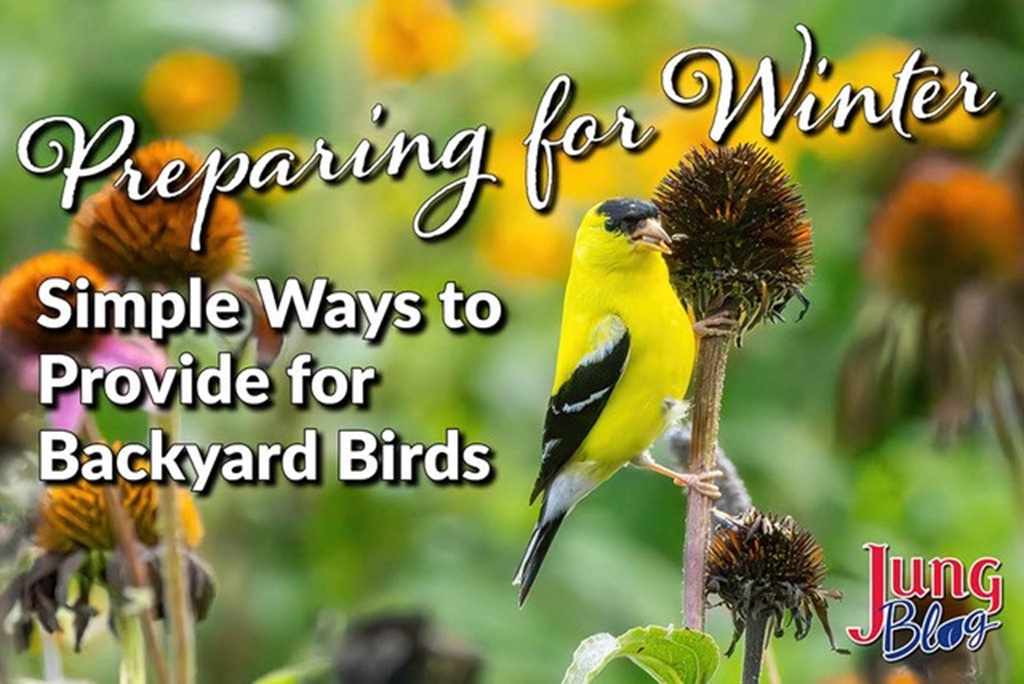
Birds use a variety of adaptations for surviving in cold climates, including fluffing their feathers, roosting and cuddling, tucking their feet and bills, and even shivering to stay warm, according to Tina Shaw for the U.S. Fish & Wildlife Service. With that in mind, however, there are a variety of ways in which you can proactively protect, support, and provide for backyard birds throughout the winter months. From the value of effective shelter to providing adequate nutrition and beyond, properly preparing your backyard can be made simple.
Preparing Adequate Shelter
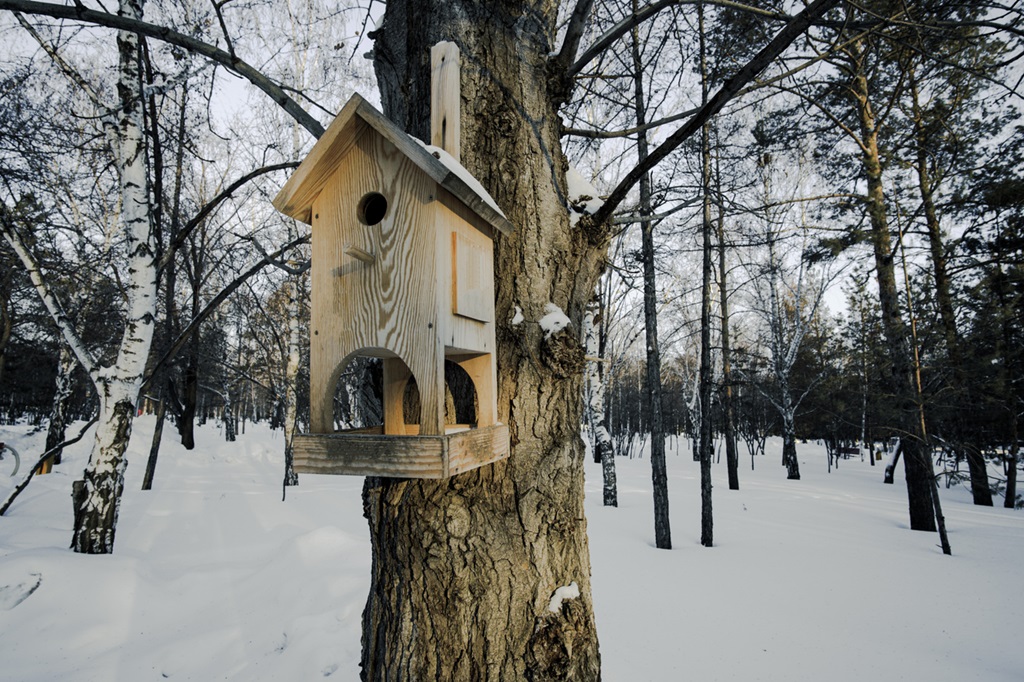
Providing shelter for backyard birds is a simple and effective way to help feathered friends get through a tough winter, as doing so can serve as protection against the wind and cold. According to Birds & Blooms, there are several ways to do this, such as by building a simple stick pile in the corner of your yard or even putting up roosting boxes. Another suggestion is to simply keep your birdhouses up throughout the winter months. “There are several species that will use birdhouses as roosting sites during the winter,” notes the post, going on to identify bluebirds as one. The Birds & Blooms post explains that as a long term solution, planting native trees and evergreen trees for cover (as well as shrubs with berries, for a food source) can work to serve your backyard birds for winters to come.
Providing Sources of Nourishment
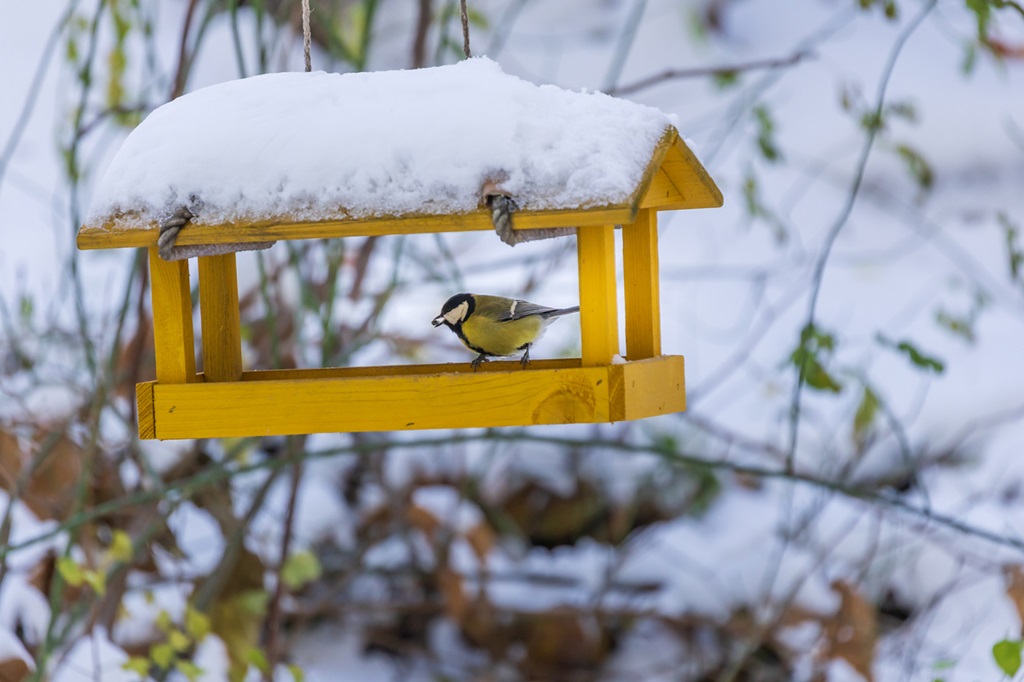
Keeping backyard birds fed throughout the winter is a great way to ensure any visitors are well-nourished, and there are plenty of ways to do so. Tom Oder for Treehugger points out the importance of investing in nutritious bird food, noting that blends that are high in black oil sunflower seeds are excellent choices. “They provide the nutrients birds need and attract a wide variety of birds,” Treehugger points out, going on to identify other beneficial food sources like suet, meat scraps, and peanut butter.
Different bird species have different requirements (for example, some prefer a hanging feeder vs. a tray), though providing options can help cater to various birds. PennState Extension notes that providing native plants with edible fruit, berries, and seeds is a fantastic way to provide nourishment for backyard birds during the winter months. And, just because the summer months are over doesn’t mean you have to stop filling the bird feeders — in fact, PennState notes that you may have to refill your bird feeders every day. “It’s important for the feeders to be close to shelter where small birds can quickly find refuge from predators, however, not so close that a cat can hide within the thick branches then jump out to grab the unsuspecting bird.”
The Importance of Backyard Safety
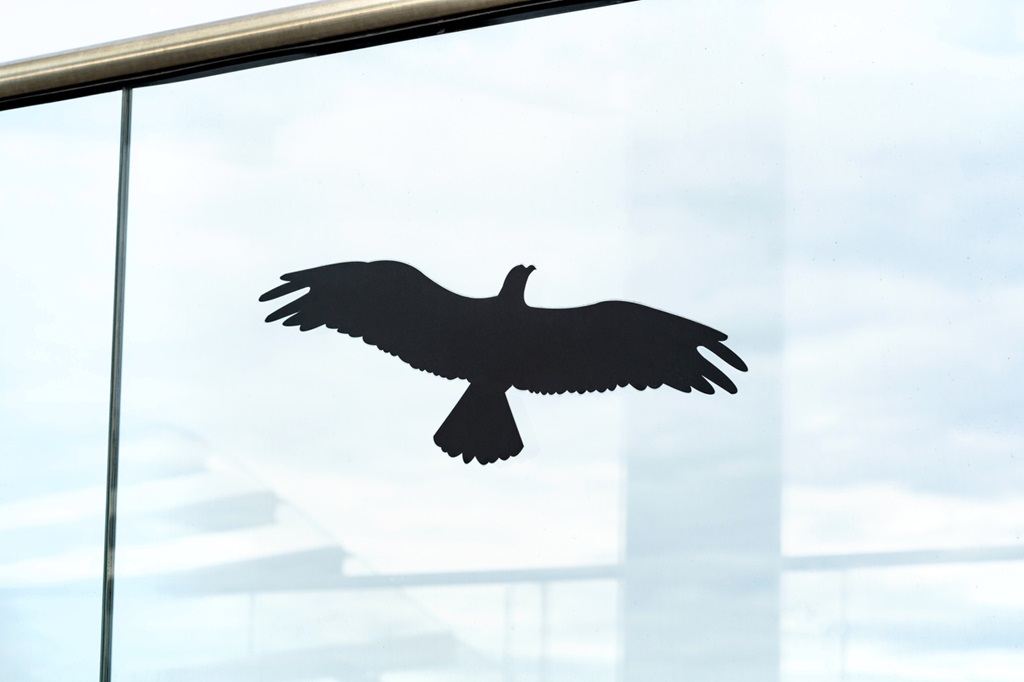
Safety is imperative when aiming to provide and support backyard birds throughout the winter. For example, many may not give their own home a second thought, though it’s important to realize that up to 1,000,000,000 birds die from flying into windows every year in the United States alone. A clean window, while aesthetically pleasing, can be a major danger to birds as they reflect the nature outside, thus making it appear as a continuation of your backyard garden, sky, and surrounding environment. In the winter months, it’s logical to think that snow can make the reflection even more confusing for birds. Improving the safety of your windows is essential for the sake of backyard birds, with effective solutions including the installation of angled, fritted, or sandblasted glass, (or the use of UV-reflective glass). While angled glass prevents the reflection of the sky or trees, fritted, etched, or sandblasted glass all disrupt the glass’ reflection enough to ward off birds from flying in that direction. Obstructing reflection of the backyard can be done in other ways as well, such as by using decals, while blinds or closed curtains indoors can achieve the same effect.
When looking to further ensure the safety of backyard birds, how you choose to provide water can have a big impact. Providing a heated bird bath, for instance, might sound like a brilliant idea — especially when considering the fact that all animals (including birds) need water year round. However, it’s imperative to consider the potential downfalls of providing heated water, as there is evidence that this can have a negative impact. “I always thought freezing birds [after bathing in a birdbath] was a myth, until one evening I pricked up six cardinals, all unable to fly because their feathers had frozen and they literally could not extend their wings,” said Tami Vogel, a dedicated bird watcher in Afton. After picking up the frozen birds and bringing them inside to thaw, Vogel was then able to release them.
To prevent the issue from happening again, Vogel had an interesting solution: “Now I cover the birdbath with boards across the middle in winter, leaving just the edges for drinking,” she said. Taking inspiration from Vogel and covering birdbaths during the winter months can present an effective solution. However, if you don’t have a birdbath, putting out water for the birds in another way (such as a container or made-for-birds water receptacle) can work just as well. With that in mind, it’s imperative to continually check each day that this water is still accessible to the birds, and isn’t entirely frozen over.
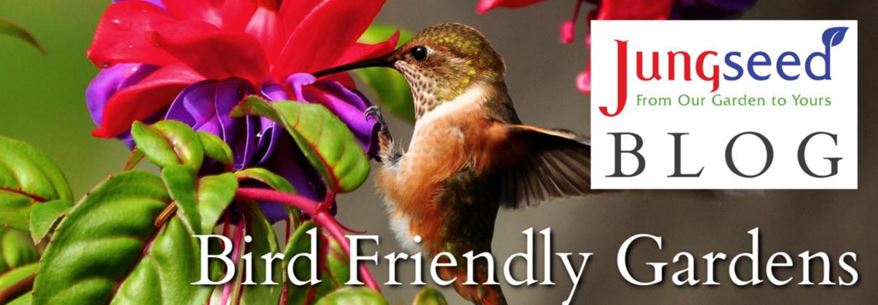
Birds are likely to survive the winter season on their own, relying on their individual adaptations to stay warm. However, taking proactive measures — such as providing shelter, food, and water in your backyard will ensure they thrive with the opportunity for shelter from harsh weather as well as proper hydration and nutrition.
Other Reading Recommendations

- How To Create A Bird-Friendly Garden
- Bee Kind Gardening – A Guide To Plant & Pollinator Balance
- Complete Guide To Lizards, Frogs & Toads In The Garden
- 15 Best Plants for Pollinators

At Jung Seed Co, we strive to be your go-to guide for all your gardening needs. Our YouTube channel The Garden Doctor by Dick Zondag is where he provides gardening tips for all levels of gardeners. When you need reliable gardening advice, turn to the trusted experts at Jung.
View our new catalog online or browse our website for your gardening favorites. To receive info on new products, exclusive deals, and specials, be sure to sign up for our weekly email. Join our Facebook page, to discuss all things gardening!
About the Author: If you are interested in writing an article for the Jung Blog email us at – info@jungseed.com.